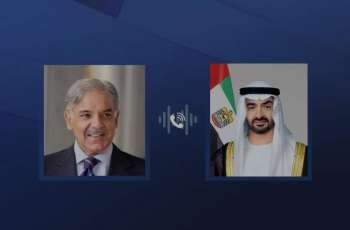Yemen's Houthis have been slammed by the country's internationally recognized government, which says that serious social and economic risks are tied to the changes approved by the group to the country's Islamic tax law that will direct revenues to families considered ancestors of the Prophet Muhammad rather than just the poor and public services, Ahmed Al-Wahishi, the Yemeni ambassador to Russia, told Sputnik on Wednesday
MOSCOW (Pakistan Point News / Sputnik - 10th June, 2020) Yemen's Houthis have been slammed by the country's internationally recognized government, which says that serious social and economic risks are tied to the changes approved by the group to the country's Islamic tax law that will direct revenues to families considered ancestors of the Prophet Muhammad rather than just the poor and public services, Ahmed Al-Wahishi, the Yemeni ambassador to Russia, told Sputnik on Wednesday.
The proposed amendment to the so-called Zakat law, which applies a 20 percent duty on utilizing natural resources and fishing industries, was approved in April but was not publicly known until now.
"On the risks involved in implementing the so-called 'executive regulation of the Zakat law' issued by Houthis include, inter alia, the following: the new regulations have serious racial connotations and are part of the Houthis' endeavor to tear apart the social fabric in Yemen by favoring one specific group of the Yemeni community and granting them privileges based on discriminatory principles that are criminalized under the national laws of the Republic of Yemen and international laws," the ambassador said.
According to the diplomat, the direct impact of this tax change will further economically burden the majority of the Yemeni people.
"The majority of Yemeni people are simple workers in agriculture and fishing. For example, stealing 20 percent of well waters and fish will contribute toward overburdening this segment of the society particularly in such desperate living conditions," he stressed.
The Yemeni government has not only criticized new regulations for dividing Yemenis into privileged and underprivileged classes but also highlighted that it would "encourage one specific group of Yemeni citizens to continue their war and aggression to reap the financial rewards and control the main state resources such as oil and gas, which will lead to further military escalation in different parts of Yemen, especially in Marib and Al-Jawf."
Al-Wahishi further underlined that these new regulations, despite being void, as they were issued by the group with no constitutional legitimacy, clearly indicated that Houthis were unwilling to achieve peace.
The ambassador stressed that changes to Zakat law was a criminal act and called on the international community and the United Nations to stand together against the new amendment, which exerts pressure on Houthis, to avoid its implementation.
The Houthis, who control large swathes of northern Yemen and the capital Sana, have waged war on the southern-based internationally recognized government for some five years. Saudi Arabia and its Arab coalition have supported the southern-based government militarily since 2015. Over the course of its civil war Yemen has become one of the world's biggest humanitarian catastrophes, suffering from poverty, malnutrition, violence and epidemics.�




